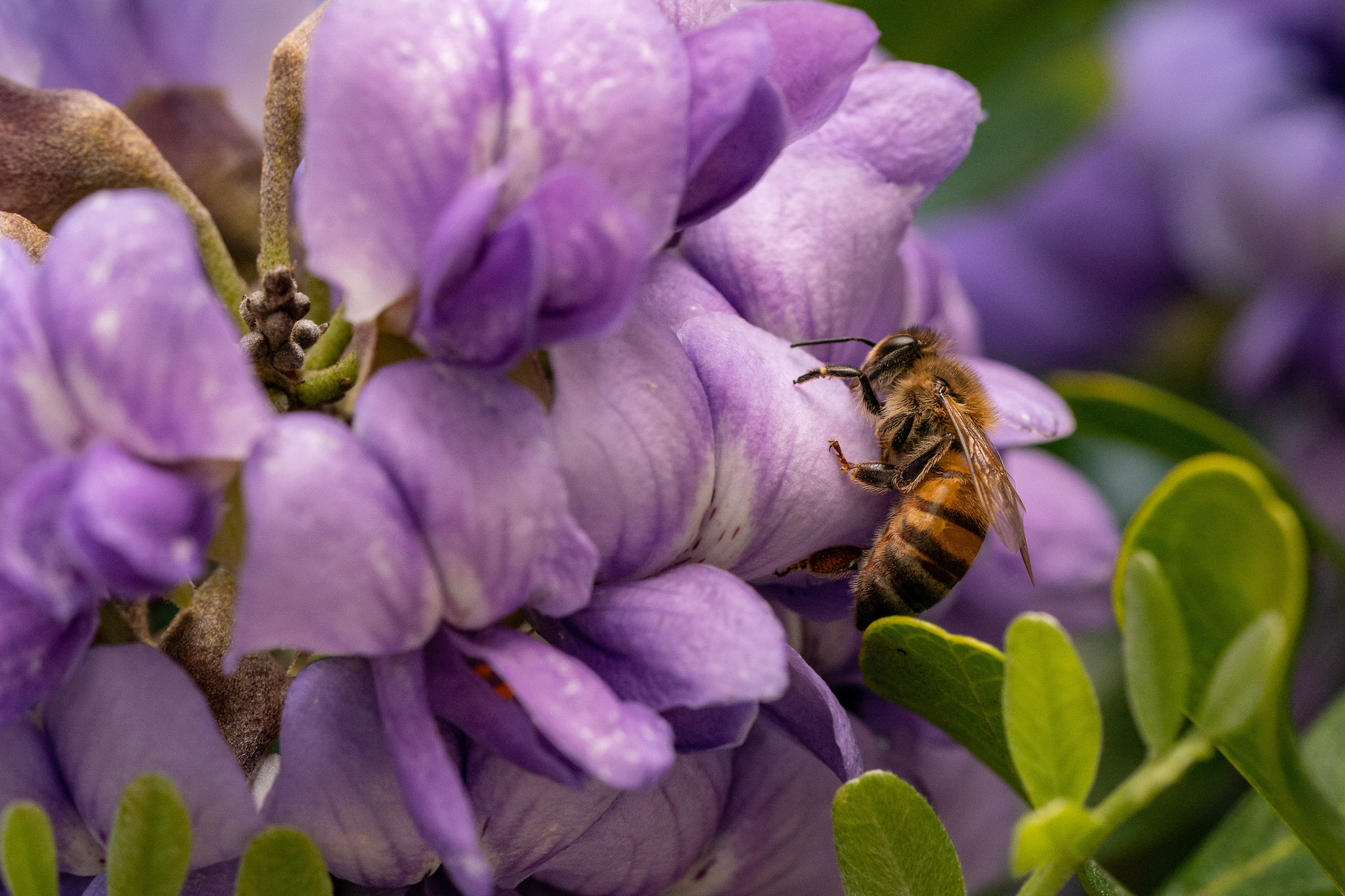
Entomology Extension
Our Extension entomologists bring the most current and relevant information about insects and related areas to keep you informed. Our information is backed by science and research at Texas A&M University and is made relevant and practical by our team of entomologists, specialists, educators or agents in your local area.
Program Areas
4-H and Youth Programs
We provide teaching, training materials, and tutorials to assist Texas 4-H Clubs train teams for insect knowledge and identification and collection competitions.
Beekeeping
The goal of our beekeeping program is to increase awareness of pollinators, decrease unnecessary pesticide use, increase pollinator health, and educate the public about beekeeping and pollinators. In recent years, there has been an increase in interest in hobbyist beekeeping, largely due to increase attention on honey bee health and the addition of honey bees to qualify for Agricultural Valuation on property taxes. We have Extension Entomologists who specialize in pollinator education and hobby beekeeping, and we have beekeeping educational and training resources.
Food and Fiber Production
Our Extension Entomologists conduct many applied research trials each year to identify superior practices to manage agricultural pests with positive economic returns. Our research-based insect pest management recommendations are available as subject-specific guides.
Agricultural Pest Management News from the Field
Production Guides:
The following production guides address insect and mite pests of Texas crops.
Garden and Yard Pest Management
Most people do not realize that most insects found in their gardens or landscapes are either beneficial or not harmful, and only a small fraction of insect species cause damage to plants. Our Extension Entomologists provide training and resources to help Texans identify insects they encounter in their gardens and yards and determine if controlling these insects is necessary.
Home, School and Other Structural Pest Management
Insects are a part of everyday life, and the greatest exposure to pests and pest control tactics occurs where people live and work. While cockroaches, bed bugs, and ants are the primary targets of indoor pesticide use, there are many other pests for which control measures are undertaken. We provide a great deal of expertise addressing structural pest management and variety of services and training opportunities related to managing structural pests.
Our school IPM expert provides professional IPM training and advice for school districts and other environmentally sensitive institutions in Texas.
Insect Identification
We provide fee-based insect specimen and insect photo identification services for Texans. Additionally, we offer a series of pictures of commonly submitted insect for identification that may assist you. If you would like to submit an insect or photo of an insect or insect damage, please visit our resources.
- “Ask An Entomologist” Insect Questions website
- Insect Identification Resources Texas Insects Most Commonly Submitted for Identification
- Submit insect photos for identification (Texas residents only, $5 fee)
- Entomology Webinar Series with Molly Keck
- Insect Orders, Training for 4H Entomology by Molly Keck
- Managing Insect Pests of Texas Sunflowers
- Managing Insect and Mite Pests of Commercial Pecans in Texas
YouTube Channel:
Integrated Pest Management
The Texas IPM Program operates in both agricultural and urban areas and seeks to demonstrate and promote IPM concepts and help Texans integrate these practices into their lives. Integrated pest management is a pest control philosophy that is built on the concepts of economic sustainability, promoting pest avoidance, pest monitoring, use of action thresholds, and reliance on pesticides only when necessary. If pesticides are necessary, then IPM chooses effective and economically viable products that are the least disruptive to non-target organisms and the environment.
Our program is comprised of Extension Entomologists located throughout the state, each specializing in regional or subject matter issues related to various aspects of IPM in agricultural and urban settings. We also provide crop scouting services in many agricultural regions throughout the state.
Learn More about Integrated Pest Management
Livestock and Companion Animal Pest Management
There are many insect pests that affect livestock and companion animals including ticks, lice, biting flies, and mosquitos. Our livestock and companion animal pest management program is primarily centered around large animals, dairies, and confined animal feeding operations.
Nursery Crop Pest Management
The Texas nursery and greenhouse industries have a low tolerance for pests and pest damage in their ornamentals and greenhouse crops. This can lead to heavy reliance on insecticides.
Our Extension Entomologists specializing in nursery and greenhouse crops provide research-based guidance to reduce reliance on insecticides while still produces pest free, aesthetically pleasing crops. Resources related to managing pest in nursery and controlled environment crops can be found here.
Vector Management (Public Health Entomology)
Mosquitoes affect the health of people and animals more than any other insect pest worldwide. Mosquitoes are nuisances, affecting people’s ability to enjoy outdoor activities, and they can transmit many infectious agents that cause diseases. Most municipalities have mosquito abatement programs to manage mosquito pests. We have an extensive Continuing Education Unit (CEU) training program for mosquito abatement programs. These classes are taught annually at many locations around Texas.


Find an Extension Program Specialist
We have 22 Extension program specialists across the state providing resources to help Texans make decisions involving their crops, gardens, homes, natural resources and communities.
Insect Identification
Our Extension entomologists provide support for those looking to identify common insects they encounter. You can browse our repository of commonly submitted insects. If you can’t find what you’re looking for, you can ask an entomologist!
Insect Fact Sheets and Management Guides
Our experts have created fact sheets and management guides for a variety of different pests and pest control issues. You can access these resources and more on our Entomology Extension website.
Browse our Resources on AgriLife Learn
We develop top-tier educational content, materials, and multimedia including online courses and publications to help our stakeholders make informed decisions.